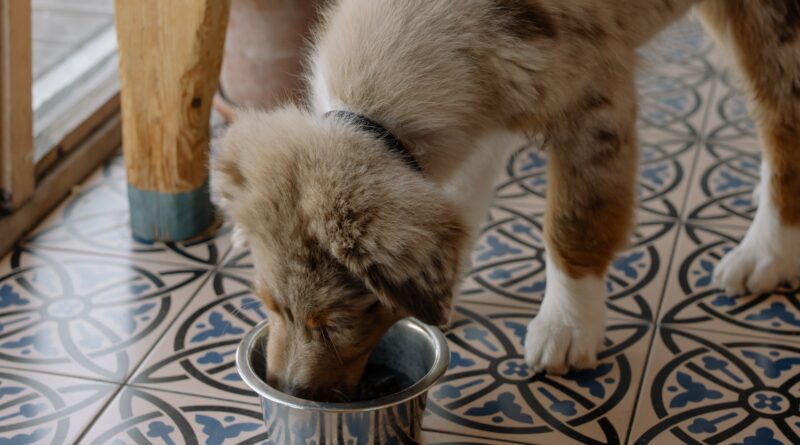6 Important Pet-Feeding Tips You Should Know
Feeding your pet has more to do than simply filling their bowls with their favorite food daily. They need proper nutrition, feeding intervals, and limits. It would help if you also kept in mind your pet’s age, workload (or activity level), place of residence, and the season when feeding them. You want your beloved animal to live healthy and happy; proper feeding is integral to achieving that. Here are some important pet-feeding tips you should know.
1. Measure, measure, measure
Every pet requires the right amount of food daily. Of course, some pets don’t mind overeating, which can easily affect their weight. It’s your responsibility to ensure that your pet has just the right amount of food to keep it full and in a healthy weight. The only way to do this is to measure their food quantity, depending on what type of pet you have, its age, and health conditions. Most pet foods have the feeding specifications you need written on their packaging, so carefully read them. But if you’re unsure, don’t hesitate to speak with your vet about the right food measurement for your pet and when to make any changes.
2. Stick to scheduled feeding
After getting your measurement right, identify and stick to an appropriate feeding schedule. Most pet owners fill their pet’s bowl and let them eat as much, little, or as frequently as they prefer. That is known as the ‘free-feeding’ method. While it’s convenient for busy pet owners, this feeding method can easily lead to over-eating, resulting in pet obesity. Scheduled feeding is a better approach, as your pet will know when to expect its food. Most pets, especially cats, return indoors when they know it’s feeding time. This method is perfect if you have pets that require specific medication. But if you must ‘free-feed’ because of your busy schedule, you must find a way to help your pet exercise. Alternatively, you can hire a pet sitter to handle the feeding schedule while away.
3. Exercise good judgment with pet supplements
Pet supplements are great, but only necessary if your animal buddy has certain nutrition deficits or is unhealthy. As mentioned, most pet foods already have all the nutrients your pet needs in their right quality. So, exercise good judgment when purchasing and adding supplements to your pet’s diet. These come in different types. So, find the ones your pet needs to address specific health issues. You can find calming supplements for stressed pets, multivitamins for overall wellness, skin and coat supplements to reduce shedding, and probiotics (or prebiotics) for healthy digestion. Some treats like mussels can also improve a dog’s skin and coat quality while boosting the immune system. But can dogs eat mussels? They can, if you learn the right way to feed them to your dog. Some supplements come in the form of healthy treats, but you may need the green light from your vet before adding them to your pet’s diet.
4. Avoid feeding them home-cooked meals
It’s best to avoid offering home-cooked meals to your pet. Pets need a good balanced diet with Dr Marty Pets. Your furbaby will receive natural freeze-dried raw food in each bite of food, treats, or supplements. You can check out Dr. Marty Pets reviews for more information. It would help if you resisted the urge to give them table scraps. Home-cooked meals may not meet your pet’s complex nutritional needs. Instead, stick to specially formulated and vet-recommended pet food, no matter how much your pet loves your food. A specially formulated pet food offers all the essential nutrients your pet needs, thanks to thorough research. However, not all specially formulated pet food may be healthy. For example, food containing Yellow 5 and Red 40 dyes can cause cell damage and hypersensitivity, especially in smaller pets. Always choose food with an AAFCO statement on the packaging.
5. Monitor your pet for signs of allergies
If you’re feeding your pet for the first time or trying new food, keep a close eye on your pet for any signs of allergies. Like humans, pets can also have food allergies or be sensitive to certain diets. For example, if your pet has uncontrolled itching after eating, experiences gastrointestinal upset, or changes behavior after eating, you must consult your vet immediately. Some vets may recommend switching to a different diet (usually a hypoallergenic diet) while addressing your pet’s issue.
6. Don’t forget about age-related changes
When a pet ages, their metabolism changes and slows considerably, just like humans. That means they cannot handle as much food as they used to. Plus, aging comes with less activity, meaning less energy usage. You need to limit your pet’s diet at this stage. Better still, switch to a senior pet food. Poor vision, regular pain, and fatigue may indicate an aging pet. But speak with your vet to be sure.



